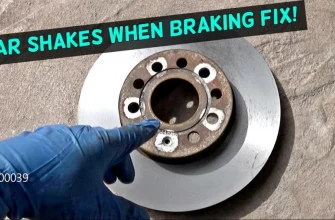When your vehicle emits a gas smell from the exhaust system, it’s not just an annoying inconvenience; it can also signal underlying issues that need to be addressed. Understanding the causes of this smell is crucial for every car owner. In this article, we will explore the various reasons behind a gas odor in exhaust systems and the implications of each.
1. Fuel System Leaks
A common culprit for a gas smell in the exhaust is a leak in the fuel system. This can occur in several areas, including:
- Fuel Injectors: Over time, fuel injectors can wear out or become damaged, leading to leaks.
- Fuel Lines: Cracks or holes in fuel lines can allow gasoline to escape.
- Fuel Tank: Corrosion or punctures in the fuel tank can result in noticeable gasoline smells.
In any of these cases, the smell of gasoline may be more pronounced when the engine is running, as the increased pressure can exacerbate leaks.
2. Exhaust System Issues
The exhaust system itself can also be a source of gas smells. Key components to consider include:
- Cracked Exhaust Manifold: A crack can allow exhaust gases, which may contain unburned fuel, to escape.
- Damaged Catalytic Converter: This critical component helps convert harmful emissions but can fail, causing unburned fuel to escape.
- Leaking Exhaust Pipes: Holes or cracks in the exhaust pipes can lead to gas odors inside and outside the vehicle.
Regular inspections of the exhaust system can help identify and mitigate these issues early on.
3. Engine Problems
Sometimes, the root cause of a gas smell can be traced back to engine malfunctions:
- Rich Fuel Mixture: If the engine is running too rich, it means that too much fuel is being delivered compared to air, leading to unburned fuel in the exhaust.
- Worn Piston Rings: This can allow fuel to leak into the crankcase, which can lead to a gas smell.
- Faulty Sensors: Malfunctioning oxygen or mass airflow sensors can also disrupt the fuel-to-air ratio.
Addressing these engine issues is vital for both performance and safety.
4. Fuel Quality
The type of fuel you use can affect the smell of your exhaust. Low-quality or contaminated fuel can lead to:
- Incomplete Combustion: Impurities in the fuel can prevent it from burning completely, resulting in unburned fuel entering the exhaust system.
- Higher Emissions: Poor-quality fuel can lead to increased emissions, which may carry a noticeable odor.
Using high-quality fuel from reputable sources can help mitigate these problems.
5. Environmental Factors
Finally, environmental conditions can also play a role in how exhaust smells:
- Temperature: Cold weather can lead to richer fuel mixtures as engines require more fuel to start and run smoothly.
- Humidity: High humidity can affect combustion efficiency, contributing to gas-like smells.
Understanding these external factors can help you when diagnosing issues with your vehicle.
A gas smell in your exhaust system is not something to ignore. Whether it’s due to fuel system leaks, exhaust issues, engine problems, fuel quality, or environmental factors, identifying the root cause is essential for your vehicle’s performance and safety. If you detect a gas smell, it’s advisable to consult a professional mechanic to ensure your vehicle is in top shape.









Great insights into fuel system leaks! I had no idea that fuel injectors could wear out like that. Definitely going to keep an eye on my vehicle now.
This article is incredibly informative! It breaks down the causes of gas smells in exhaust systems clearly and concisely. A must-read for car owners!
I found the discussion about engine problems fascinating. It
This article is a lifesaver! The detailed explanations make it easy to understand what could be wrong with my car when I smell gas. Highly recommend it to others!
I appreciate how this article highlights the importance of regular inspections. Understanding potential issues can save us from costly repairs later on.
Fantastic read! The way you explained the different components involved in gas odors was very enlightening. It’s important information every driver should know!
The section on exhaust system issues was particularly helpful. I learned a lot about cracked manifolds and damaged catalytic converters. Thank you for sharing this information!